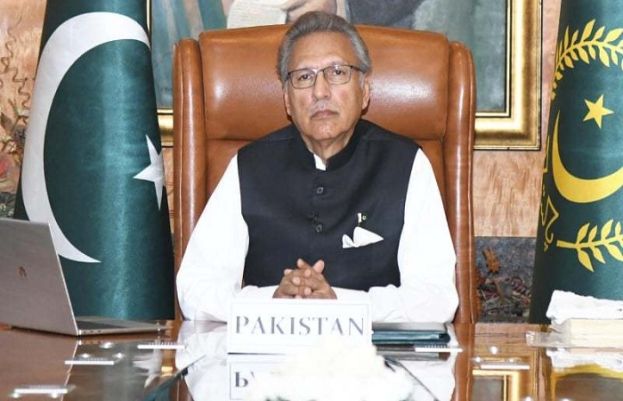President Arif Alvi signed PECA ordinance

Both laws were signed by the president after the Cabinet approved them. The changes made in the electronic crimes act have been made under the Prevention of Electronic Crimes (Amendment) Ordinance, 2022.
Under the ordinance, the definition of a “person” has been broadened to include any company, association, institution, organisation, authority, or any other. Furthermore, anyone found guilty of attacking a person’s “identity” will now be sentenced to five years instead of three years.
The ordinance also states the informant or the complainant shall be “aggrieved person, his authorised representative, or his guardian, where such person is a minor or a member of the public in respect of a public figure or a holder of public office”.
Cases falling under PECA will be supervised by a high court and the trial court will have to conclude the case within six months.
“The court shall submit a monthly progress report of any pending trial to the concerned high court and shall give reasons for the inability of the court to expeditiously conclude the trial,” says the ordinance.
Apart from sending the report to the high courts, copies of the progress report will be sent to the law secretary if the case is registered in the Islamabad Capital Territory. However, if a case is registered in a province, then the copies of the report will be submitted to the “provincial secretaries of prosecution departments, the prosecutor general or advocate general”.
The ordinance also authorises the high court to issue “fresh timelines” of a case if it finds the “reasons” given by the trial court “plausible” and beyond its control.
The ordinance also empowers the high courts to summon federal or provincial government officers to remove any “difficulties, hindrances and obstacles” it finds in the case.
If the law secretaries find that the case was delayed due to the “presiding officer or any of its functionaries” then they may inform the high court. If the high court is of the view that the delay in the disposal of a trial is attributable to the presiding officer of the court or any other court functionary then they can initiate or “direct commencement of appropriate disciplinary proceedings."
The ordinance also empowers the chief justice of every high court to nominate a judge along with other officers.
from latest-news - SUCH TV https://ift.tt/jqvWO5U
Comments
Post a Comment